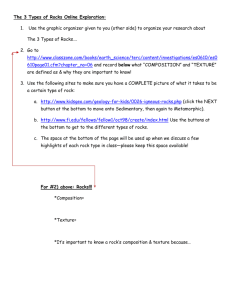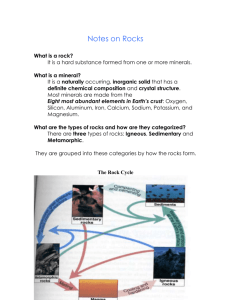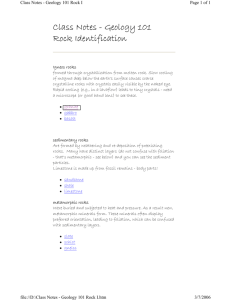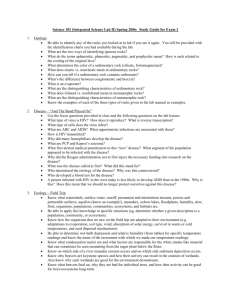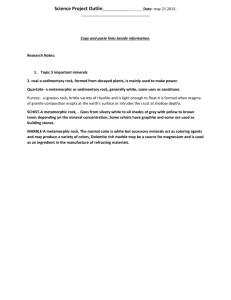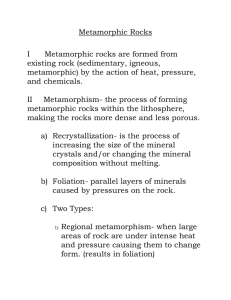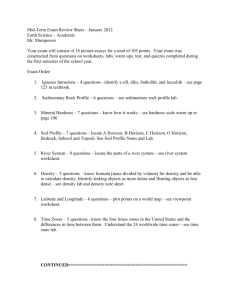Lesson Plans February 8, 2016
advertisement
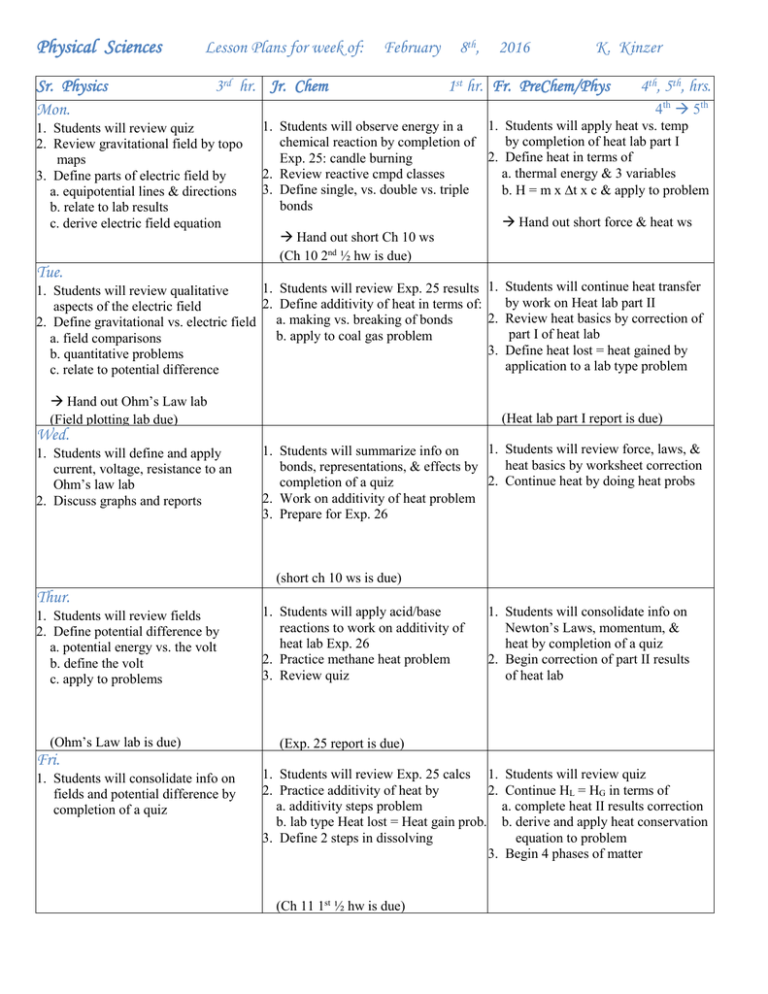
Physical Sciences Lesson Plans for week of: Sr. Physics Mon. February 3rd hr. Jr. Chem 1. Students will review quiz 2. Review gravitational field by topo maps 3. Define parts of electric field by a. equipotential lines & directions b. relate to lab results c. derive electric field equation Tue. 8th, 2016 K. Kinzer 1st hr. Fr. PreChem/Phys 4th, 5th, hrs. 4th 5th 1. Students will apply heat vs. temp 1. Students will observe energy in a by completion of heat lab part I chemical reaction by completion of 2. Define heat in terms of Exp. 25: candle burning a. thermal energy & 3 variables 2. Review reactive cmpd classes 3. Define single, vs. double vs. triple b. H = m x t x c & apply to problem bonds Hand out short force & heat ws Hand out short Ch 10 ws (Ch 10 2nd ½ hw is due) 1. Students will review Exp. 25 results 1. Students will continue heat transfer 1. Students will review qualitative by work on Heat lab part II 2. Define additivity of heat in terms of: aspects of the electric field 2. Review heat basics by correction of a. making vs. breaking of bonds 2. Define gravitational vs. electric field part I of heat lab b. apply to coal gas problem a. field comparisons 3. Define heat lost = heat gained by b. quantitative problems application to a lab type problem c. relate to potential difference Hand out Ohm’s Law lab (Field plotting lab due) (Heat lab part I report is due) Wed. 1. Students will define and apply current, voltage, resistance to an Ohm’s law lab 2. Discuss graphs and reports 1. Students will review force, laws, & 1. Students will summarize info on heat basics by worksheet correction bonds, representations, & effects by 2. Continue heat by doing heat probs completion of a quiz 2. Work on additivity of heat problem 3. Prepare for Exp. 26 (short ch 10 ws is due) Thur. 1. Students will review fields 2. Define potential difference by a. potential energy vs. the volt b. define the volt c. apply to problems (Ohm’s Law lab is due) Fri. 1. Students will consolidate info on fields and potential difference by completion of a quiz 1. Students will apply acid/base reactions to work on additivity of heat lab Exp. 26 2. Practice methane heat problem 3. Review quiz 1. Students will consolidate info on Newton’s Laws, momentum, & heat by completion of a quiz 2. Begin correction of part II results of heat lab (Exp. 25 report is due) 1. Students will review Exp. 25 calcs 1. Students will review quiz 2. Practice additivity of heat by 2. Continue HL = HG in terms of a. additivity steps problem a. complete heat II results correction b. lab type Heat lost = Heat gain prob. b. derive and apply heat conservation 3. Define 2 steps in dissolving equation to problem 3. Begin 4 phases of matter (Ch 11 1st ½ hw is due) How It Works ? 6th hr. 8th Earth Science Mon. 1. Students will continue & complete Tollens silver mirroring lab 2. Complete lab report 7th hr. 1. Complete sedimentary rocks by a. define the 3 basic types b. define clastic vs. organic vs. chemical precipitate formation Tue. 1. Students will discuss mirror lab & 1. Students will continue & complete sedimentary ID & formation it’s Redox reaction 2. Define metamorphic rocks in general 2. Begin review of chemistry basics & & formation electrochemistry via work on review worksheet Wed. 1. Continue review by worksheet correction 2. Begin: what is organic chemistry (Sedimentary rock lab report is due) 1. Students will define metamorphic traits, and their parent rocks by work on IET 10-6 2. Discuss lab report 3. Continue formation of metamorphics Thur. 1. Students will summarize information 1. Students will define metamorphic rocks via: on redox & battery electricity via a a. regional vs. contact formation quiz completion b. foliated vs. non-foliated types c. apply metamorphic ID of 6 rocks to their parent rocks Hand out rock review ws (Metamorphic rock lab is due) Fri. 1. Students will define & discover the 1. Students will define the rock cycle and relate it to range of fields in organic chemistry a. location in Earth by internet research b. energy used 2. Review & summarize rock types 3. Go over worksheet problems 4. Discuss rock collections
